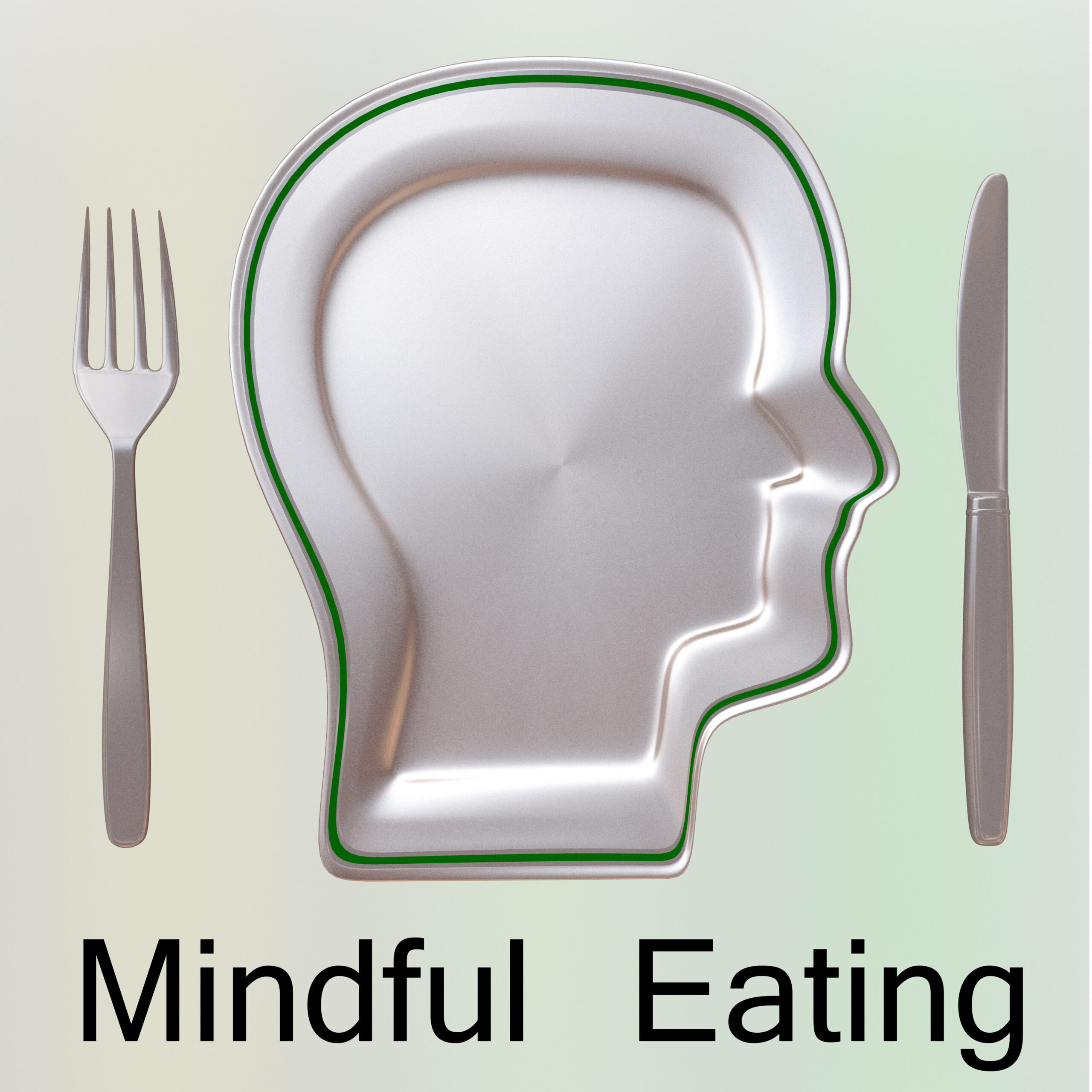The Mindful Diet: Harnessing the Power of Mindfulness for Effective Weight Loss
July 19, 2023
 560
560 
Written By: Jack Riess NASM Certified Personal Trainer and Life Long Researcher of Health and Longevity.
In today’s fast-paced, always-connected world, the practice of mindfulness has become a beacon for those seeking respite from the constant onslaught of information and distractions.
From Silicon Valley to the world of sports, mindfulness is being adopted as a way to enhance performance, reduce stress, and promote overall well-being.
Not just another fad, mindfulness is now recognized as a practical approach to fostering mental clarity, emotional balance, and physical health.
Mindfulness, at its core, is about being present, aware, and engaged in the current moment.
It is a simple yet powerful tool that helps us to slow down, focus on the here and now, and cultivate a deeper understanding of our own experiences.


This practice, though seemingly straightforward, holds enormous potential for positively impacting various facets of our lives, including our health and wellness.
One area where mindfulness is showing considerable promise is in the realm of diet and weight loss.
Amid the constant buzz of new diet trends and the relentless pursuit of weight loss goals, mindfulness offers a refreshing perspective.
It shifts our focus from the external world of diet plans and body ideals to the internal world of our own thoughts, feelings, and physical sensations.
The goal of this blog is to explore this intriguing intersection of mindfulness and weight loss, and shed light on how you can harness the power of mindfulness to enhance your own weight loss journey.
Understanding Mindfulness


Mindfulness, in essence, is the practice of paying deliberate attention to our experiences in the present moment in a non-judgmental way.
It encourages us to observe our thoughts, feelings, and sensations without trying to suppress them or get carried away by them.
Instead of living on autopilot or getting caught up in habitual patterns of thinking and behaving, mindfulness helps us to stay engaged and responsive to our experiences as they unfold.
Originating from ancient Buddhist meditation practices, mindfulness has been repurposed in modern times to suit secular contexts.
It was introduced to the West by figures like Jon Kabat-Zinn, who developed Mindfulness-Based Stress Reduction (MBSR) in the late 70s.
MBSR, an 8-week program that combines mindfulness meditation and yoga, was initially designed to help patients cope with chronic pain and stress-related disorders.
Its effectiveness has since been validated by numerous studies, and it now serves as the foundation for many mindfulness-based interventions.
Today, mindfulness has found its way into a diverse range of fields, including psychology, neuroscience, and healthcare.
In the realm of psychology, mindfulness-based therapies have been developed to treat a variety of conditions, from depression and anxiety to addiction and eating disorders.
These therapies leverage the power of mindfulness to help individuals gain insight into their mental processes, develop healthier coping mechanisms, and ultimately improve their quality of life.
As we delve further into the role of mindfulness in diet and weight loss, we’ll see that the principles and practices of mindfulness can be a potent ally in fostering healthier eating habits, promoting sustainable weight loss, and improving our relationship with food and our bodies.
Mindfulness and Eating


Mindful eating is the practice of engaging mindfulness while we eat, turning mealtime into a moment of full awareness.
It’s about truly experiencing our food—tasting it, savoring it, and tuning into the signals our body sends us about satisfaction and fullness.
Rather than eating on autopilot or getting caught up in distractions, mindful eating allows us to bring our complete attention to the process of eating.
This stands in contrast to what we might call ‘mindless eating,’ which is when we eat without consciously thinking about what or how much we’re consuming.
Mindless eating is when we finish a bag of chips while watching TV, continue to snack even though we’re no longer hungry, or reach for comfort food in response to stress or emotional upset.
It’s easy to see how mindless eating can lead to unhealthy patterns and contribute to weight gain.
On the other hand, mindful eating offers numerous benefits.
First, it increases our enjoyment of food. When we slow down and savor our meals, we can appreciate the flavors, textures, and aromas more fully. Second, mindful eating can contribute to better digestion.
Eating slowly and chewing thoroughly aids in the digestive process, and being attuned to our bodies helps us recognize when we’re satisfied, reducing the likelihood of overeating.
Finally, mindful eating helps us develop a healthier relationship with food.
It allows us to recognize and respond to our body’s hunger and satiety cues effectively, rather than being driven by external triggers or emotional responses.
The Science Behind Mindful Eating and Weight Loss


The intersection of mindfulness, eating, and weight loss has been the subject of many scientific studies.
Research has shown that mindful eating can be an effective tool for weight management.
A study published in the Journal of Behavioral Medicine, for instance, found that participants who practiced mindful eating reported less impulsive eating and showed significant decreases in weight and body mass index.
So why does mindful eating contribute to weight loss?
The answer lies in the fundamental principles of mindfulness.
By increasing our awareness of our eating habits, we’re more likely to notice patterns that aren’t serving us well, such as overeating or emotional eating.
When we’re fully present during our meals, we’re more likely to make healthier choices and less likely to eat past the point of fullness.
Furthermore, mindful eating promotes long-term, sustainable weight management.
Unlike dieting, which often involves restriction and can lead to cycles of weight loss and regain, mindful eating fosters a balanced, non-judgmental relationship with food.
It encourages us to listen to our bodies and eat in a way that supports our overall health and well-being, rather than fixating on the number on the scale.
As such, the benefits of mindful eating extend far beyond weight loss.
It’s a practice that can enrich our lives, both at the dining table and beyond.
How to Practice Mindful Eating


Practicing mindful eating may seem daunting at first, but it’s a skill that can be developed over time.
Here is a step-by-step guide to help you on your journey:
Common challenges in mindful eating include distractions, eating too quickly, and emotional eating.
To overcome these, set aside specific times for meals, practice eating slowly, and develop non-food coping mechanisms for stress and negative emotions.
Incorporating mindfulness into various diets or eating plans is quite feasible.
The idea is to stay present, listen to your body’s signals, and enjoy your food, regardless of your dietary choices.
Whether you’re following a plant-based, keto, or any other diet, mindful eating can enhance your experience and make your eating plan more sustainable.
Train Your Brain!


In this journey through the practice of mindful eating, we’ve explored its origins, benefits, and practical application.
We’ve also seen how it can support weight loss and promote a healthier relationship with food.
The beauty of mindful eating lies in its simplicity and its transformative potential.
It goes beyond diet plans and weight goals, offering a sustainable approach to health and wellness.
If you’re seeking to lose weight or simply improve your relationship with food, mindful eating could be a worthwhile endeavor.
Remember, it’s not just about what you eat, but how you eat.
It’s not just a diet or a weight loss tool, but a lifelong practice that can enhance many areas of life.
So, take a deep breath, slow down, and savor your next meal. Welcome to the mindful eating journey!


In recent years, the quality and authenticity of olive oil have come under scrutiny, with shocking revelations about widespread fraud in the industry. A groundbreaking episode of the popular news program “60 Minutes” shed light on this issue, exposing a disturbing trend of adulteration in many well-known olive oil brands The “60 Minutes” Investigation The […]


The American food system is facing a critical challenge that has been decades in the making. A regulatory loophole from the 1950s has allowed food companies to operate with minimal oversight, potentially exposing consumers to thousands of untested chemicals in their daily diets. This situation has created a significant public health concern that demands immediate […]


This is outrageous and a serious threat to the human brain! Look at these headlines! Recent scientific studies have revealed alarming evidence of nanoplastic accumulation in various human organs, with the most shocking findings related to the brain. A preprint study from early 2024 found particularly concerning levels of microplastics in human brain samples Brain […]